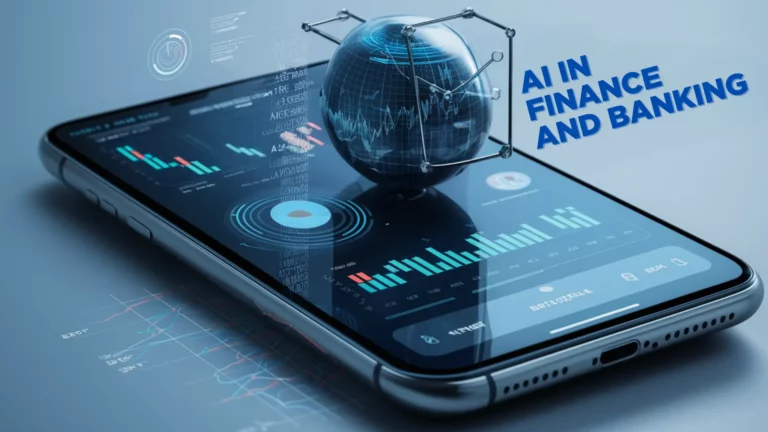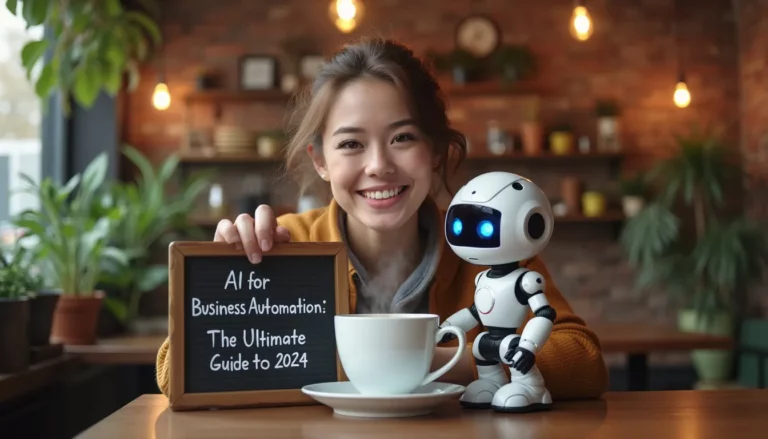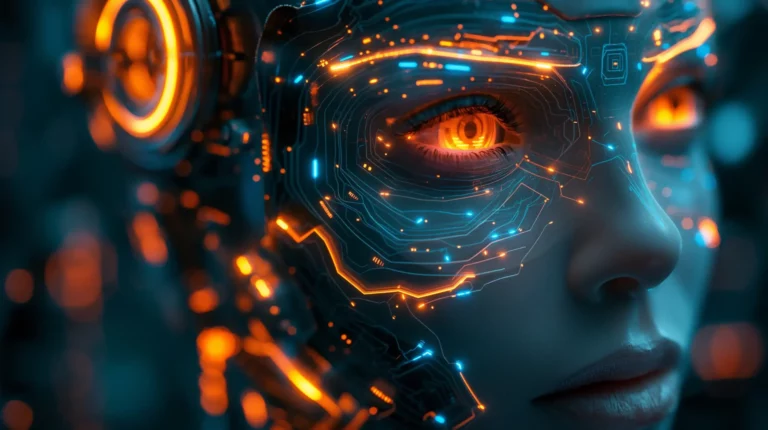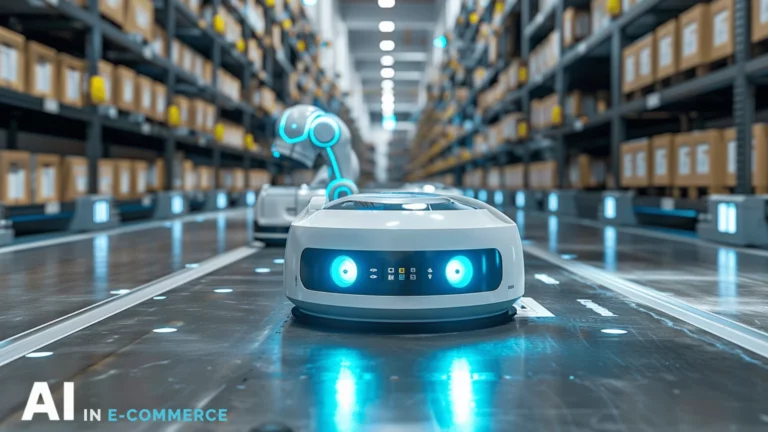The Rise of Artificial Intelligence: Transforming Industries and Everyday Life
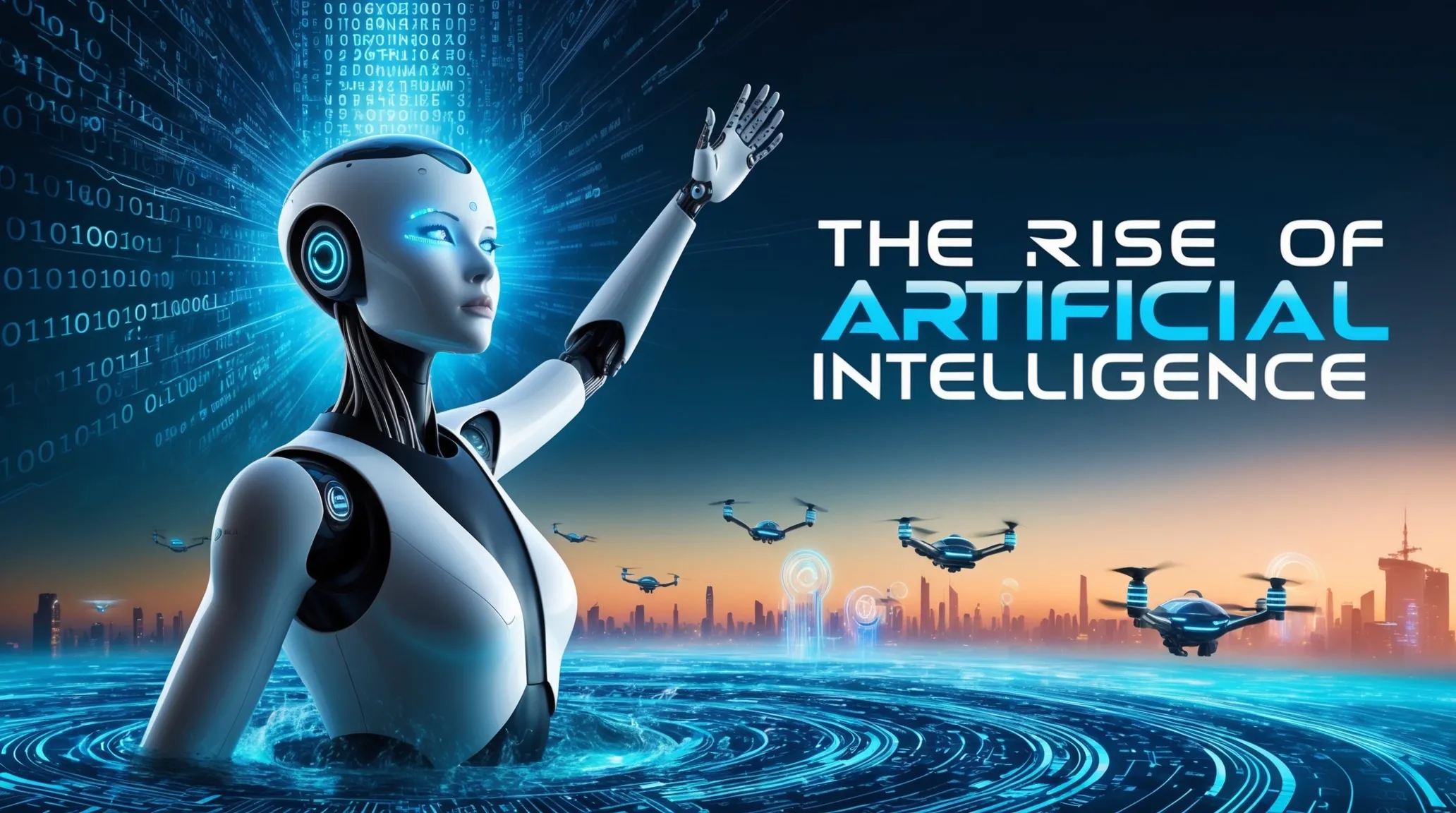
Artificial intelligence (AI) is changing various industries by making operations more efficient, improving decision-making, and providing convenience in our daily lives. It is being used in fields such as healthcare, finance, transportation, and criminal justice, demonstrating its ability to bring about significant change.
- How AI is Reshaping Industries
- AI's Impact on Daily Life
- Healthcare
- Finance
- Transportation
- Criminal Justice
- Enhancing Decision-Making Processes with Machine Learning Algorithms
- Economic Contributions of AI Technologies
- Smart Devices Revolutionizing Our Homes and Lives
- Automation for Personal Convenience: From Chores to Health Monitoring
- Data-Driven Decision-Making in Everyday Applications
- Safeguarding Privacy and Ensuring Data Protection with Regulation Frameworks
- Addressing Algorithmic Bias Risks Through Ethical Design Practices
- Preparing for Job Displacement Concerns Caused by Automation Technologies
Our audience supports Ahcrypto. When you click on the links on our site, we may earn an affiliate commission at no extra cost to you. Learn More.
How AI is Reshaping Industries
Here’s how AI is making a difference in different sectors:
- Healthcare: AI assists in medical diagnostics.
- Finance: Predictive analytics improve financial decisions.
- Transportation: Autonomous vehicles enhance safety.
- Criminal Justice: Real-time data analysis aids in crime prevention.
AI’s Impact on Daily Life
Artificial Intelligence is also influencing our everyday lives through smart devices such as voice-activated assistants and smart thermostats. These technologies provide us with convenience and help us save energy.
The rise of artificial intelligence represents a major shift that is transforming our world.
The Transformation of Industries
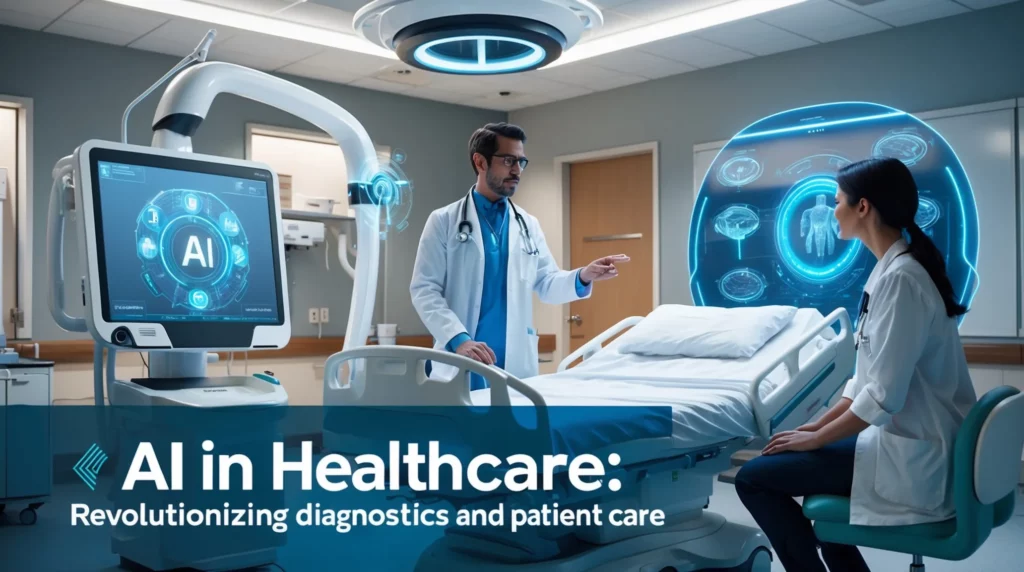
Artificial Intelligence is significantly transforming industries, bringing about unprecedented changes. Several key sectors have been profoundly impacted:
Healthcare
AI applications in the healthcare sector are revolutionizing medical practices. Medical diagnostics benefit immensely from AI’s ability to analyze complex datasets, leading to early detection of diseases and personalized treatment plans. For example, IBM’s Watson Health uses Artificial Intelligence algorithms to assist doctors in diagnosing cancer and recommending tailored treatments based on patient data.
Benefits:
- Enhanced diagnostic accuracy
- Personalized patient care
- Improved treatment outcomes
Challenges:
- Data privacy concerns
- Integration with existing systems
- High implementation costs
Finance
In the finance sector, AI applications streamline operations and enhance decision-making. Technologies like fraud detection systems and automated trading platforms use machine learning algorithms to identify suspicious activities and optimize trading strategies in real time. JPMorgan Chase’s COiN platform, which processes legal documents, exemplifies how Artificial Intelligence can save thousands of hours of manual work.
Benefits:
- Increased efficiency and accuracy
- Reduced operational costs
- Enhanced security measures
Challenges:
- Algorithmic biases
- Regulatory compliance issues
- Dependence on data quality
Transportation
AI is reshaping transportation through innovations such as autonomous vehicles and predictive maintenance for public transport systems. Companies like Tesla are pioneering self-driving cars that use Artificial Intelligence to navigate and make real-time decisions, promising safer roads and reduced traffic congestion.
Benefits:
- Improved safety and efficiency
- Reduced traffic congestion
- Lower environmental impact
Challenges:
- Technological reliability concerns
- Ethical implications of autonomous decision-making
- Job displacement in traditional driving roles
Criminal Justice
The criminal justice sector employs Artificial Intelligence for tasks like predictive policing and risk assessment during sentencing. Predictive models analyze crime data to forecast potential criminal activities, aiding law enforcement agencies in resource allocation. Similarly, risk assessment tools evaluate the likelihood of reoffending to inform judicial decisions.
Benefits:
- Data-driven policing strategies
- Fairer sentencing outcomes based on objective risk assessments
- Efficient resource allocation
Challenges:
- Potential for racial or socio-economic biases in algorithms
- Privacy concerns related to surveillance technologies
- Ethical dilemmas around preemptive actions based on predictions
Enhancing Decision-Making Processes with Machine Learning Algorithms
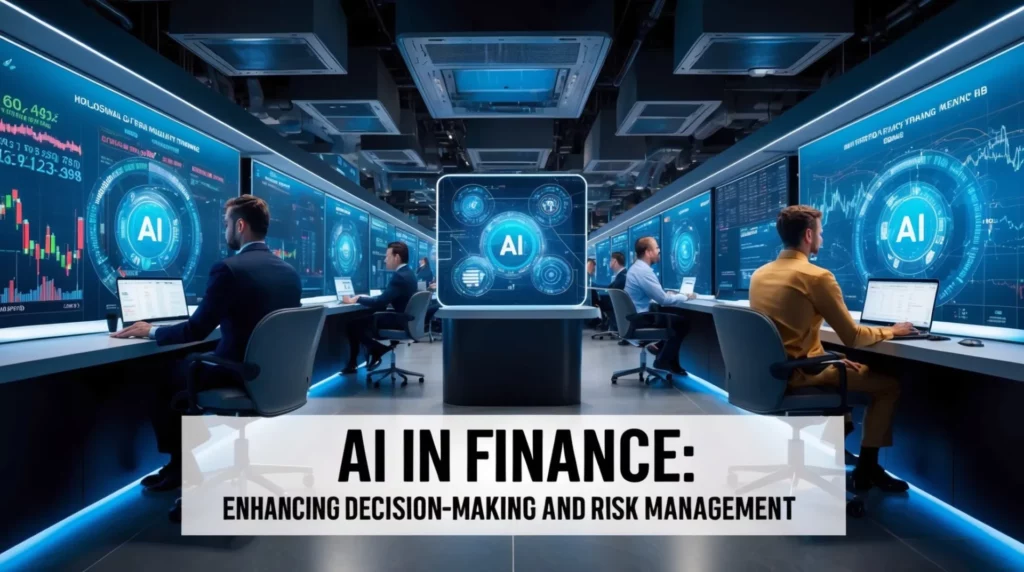
Machine learning algorithms and predictive analytics are changing the way decisions are made in various important industries affected by AI.
Healthcare
In healthcare, AI applications are improving the accuracy of diagnoses by analyzing large amounts of data to find patterns that human doctors might overlook. This ability leads to early detection of diseases and personalized treatment plans.
Finance
In finance, machine learning algorithms are used to detect fraud and assess risk. These systems can send immediate alerts and protect assets by looking at transaction histories and finding irregularities. Predictive analytics also help financial institutions improve their investment strategies for better returns.
Transportation
Transportation benefits from AI through better planning of routes and maintenance based on predictions. By studying traffic patterns and vehicle performance data, machine learning models can foresee potential problems before they become critical, reducing downtime and increasing safety.
Case Studies:
- Healthcare: IBM Watson’s Artificial Intelligence platform has been used in cancer diagnostics to recommend treatment options based on a patient’s unique genetic profile.
- Finance: JPMorgan Chase uses an AI system called COiN (Contract Intelligence) to analyze legal documents and extract important data points, significantly speeding up processing times.
- Transportation: UPS employs ORION (On-Road Integrated Optimization Navigation), an AI tool that analyzes delivery routes to save fuel and time, leading to significant cost reductions.
The integration of machine learning algorithms into these sectors shows their potential to change decision-making processes, resulting in more efficient and accurate outcomes.
Economic Contributions of AI Technologies
AI technologies are expected to have a significant impact on the economy. By 2030, Artificial Intelligence could contribute up to $15.7 trillion to the global economy. This increase in economic activity is expected to come from several sources, such as:
- Increased productivity
- New and improved products and services
- Higher demand for better goods and services
The countries that are currently leading in AI investments and development are:
- United States
- China
- Several countries in the European Union
These regions are investing heavily in research and development (R&D), supporting innovation centers, and establishing regulations that promote AI growth.
Key sectors impacted by AI:
- Healthcare: AI applications in the healthcare sector are improving medical diagnoses, patient care, and treatment methods.
- Finance: The finance industry benefits from Artificial Intelligence through detecting fraud, managing risks, and using algorithms for trading.
- Transportation: Self-driving vehicles and intelligent traffic management systems are changing how transportation works and making it safer.
These advancements show how integrating AI technologies into various industries can drive economic growth in the future.
The Role of AI in Everyday Life
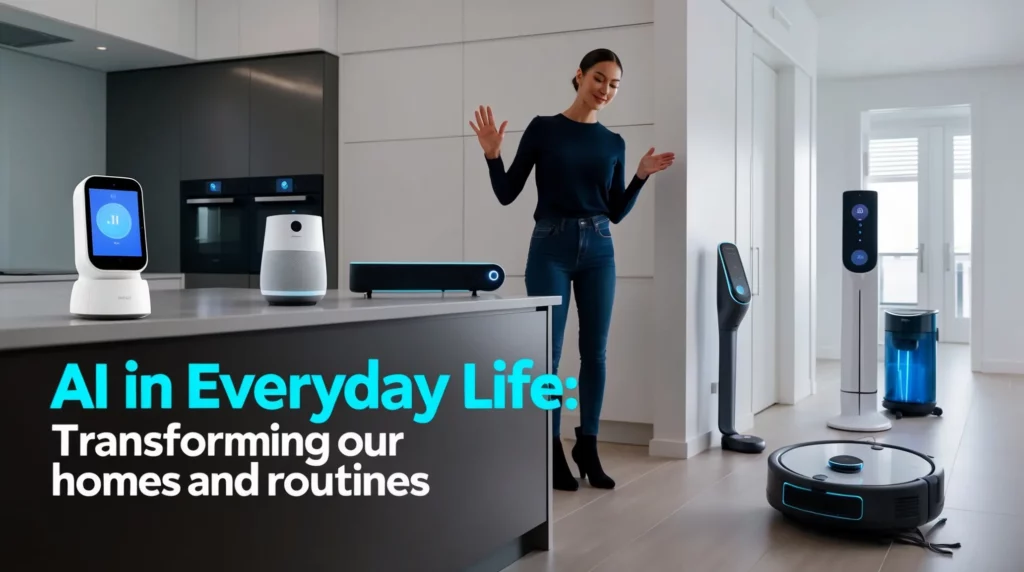
Smart Devices Revolutionizing Our Homes and Lives
AI-powered smart devices have become an essential part of our lives, changing the way we interact with our homes and handle daily tasks. Here are some popular examples:
- Voice-activated assistants: Devices like Amazon Echo and Google Home use natural language processing to allow hands-free control of various functions, from playing music to setting reminders.
- Smart thermostats: Products such as Nest Learning Thermostat optimize energy usage by learning your routine and adjusting the temperature accordingly.
- Automated lighting systems: Philips Hue smart bulbs can be controlled remotely, offering convenience and energy efficiency by adjusting lighting based on occupancy or time of day.
These devices offer several benefits:
- Convenience: Voice-activated assistants enable you to perform tasks without physical effort, freeing up time for other activities.
- Energy Efficiency: Smart thermostats and lighting systems reduce energy consumption by optimizing usage patterns, leading to cost savings on utility bills.
- Improved Quality of Life: Automated systems enhance home security through features like remote monitoring and alerts, providing peace of mind.
By integrating Artificial Intelligence into everyday objects, we not only improve their functionality but also make technological advancements more accessible to a wider audience.
Automation for Personal Convenience: From Chores to Health Monitoring
Smart technologies have transformed consumer products, making daily life more convenient and efficient. Intelligent automation has simplified household tasks with devices like robotic vacuum cleaners and smart ovens:
Robotic Vacuum Cleaners
These devices autonomously navigate your home, cleaning floors without human intervention. They use advanced sensors and AI algorithms to avoid obstacles and adapt to different surfaces.
Smart Ovens
Capable of adjusting cooking times and temperatures based on the type of food, these ovens ensure perfectly cooked meals with minimal effort.
In addition to household chores, wearable devices play a significant role in health monitoring:
- Fitness Trackers: Devices such as Fitbit monitor physical activity, heart rate, and sleep patterns, providing insights into your overall health.
- Smartwatches: Beyond tracking fitness metrics, smartwatches offer features like ECG monitoring and blood oxygen level measurement, enabling proactive health management.
These smart home devices bring numerous benefits:
- Convenience: Automating mundane tasks frees up time for other activities.
- Energy Efficiency: Smart devices often include energy-saving features that reduce consumption.
- Improved Quality of Life: With less time spent on chores and better health monitoring, these technologies enhance daily living experiences.
The integration of Artificial Intelligence in smart consumer products continues to streamline everyday activities while improving our well-being.
Data-Driven Decision-Making in Everyday Applications
Artificial Intelligence seamlessly integrates into our daily lives through smart technologies embedded in consumer products. These smart home devices provide numerous benefits, enhancing our personal finance management and travel planning with data-driven insights.
1. Personal Finance Management
- AI-powered apps analyze spending habits, predict future expenses, and suggest budgeting strategies.
- Real-time notifications alert you to unusual activities or overspending trends.
- Investment platforms utilize predictive analytics to recommend optimal investment portfolios based on market trends.
2. Travel Planning
- AI algorithms assess factors like weather conditions, historical data, and user preferences to suggest the best travel itineraries.
- Smart assistants can book flights, hotels, and rental cars while adjusting plans dynamically based on real-time information.
- Predictive models estimate potential delays or disruptions, offering alternative routes or schedules.
Practical examples showcasing the value of predictive analytics:
- Fitbit: Uses data from daily activities to offer personalized health recommendations and predicts potential health issues by analyzing long-term patterns in physical activity and sleep quality.
- Nest Thermostat: Learns your temperature preferences over time and optimizes energy usage by predicting when you’ll be home or away, significantly reducing energy bills.
These applications illustrate how AI-driven data processing and risk assessment enhance everyday experiences, making life more convenient and efficient.
Ethical Considerations and Challenges Ahead
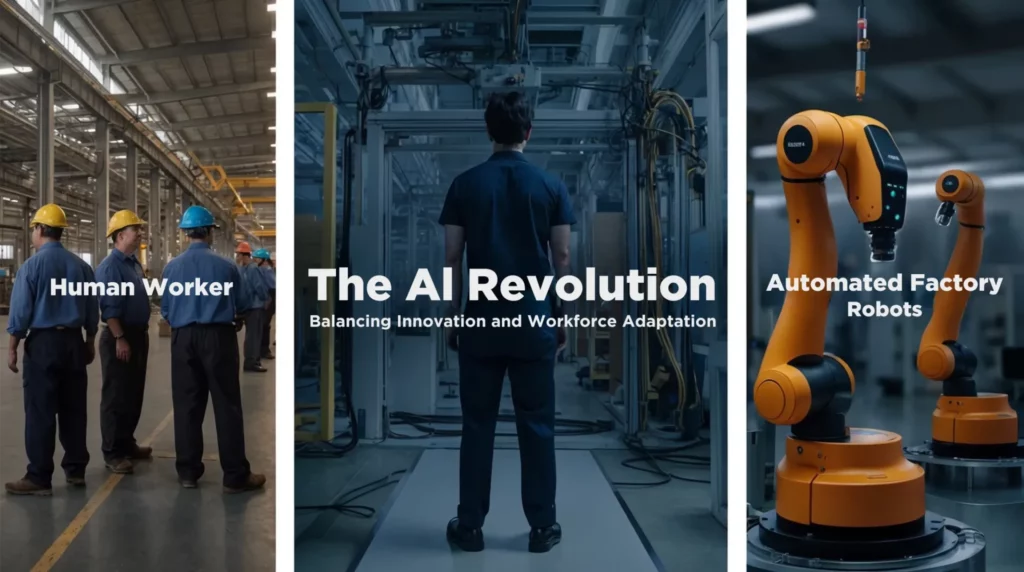
Safeguarding Privacy and Ensuring Data Protection with Regulation Frameworks
The integration of Artificial Intelligence into surveillance systems has raised significant privacy concerns. Advanced AI-powered surveillance systems can track and analyze individuals’ movements and activities in real-time. This unprecedented oversight can infringe on individual privacy rights, leading to potential misuse and abuse of personal data.
Key implications:
- Mass Surveillance: Governments and organizations can extensively deploy Artificial Intelligence to monitor public spaces. While this can enhance security, it also risks creating a surveillance state where citizens’ activities are constantly monitored.
- Data Breaches: Vast amounts of personal data are being collected, which increases the risk of data breaches. Unauthorized access to sensitive information can lead to identity theft and malicious activities.
To address these issues, there is a pressing need for robust regulatory frameworks that prioritize data protection regulations. Such frameworks would ensure that AI technologies are used ethically and responsibly.
Essential components of effective regulation:
- Transparency Requirements: Organizations should be transparent about the data they collect, how it is used, and who has access to it.
- Consent Mechanisms: Individuals must have control over their personal data, including the ability to opt in or opt out of data collection processes.
- Data Minimization: Only essential data should be collected to achieve the intended purpose, reducing the risk of unnecessary exposure.
- Regular Audits: Continuous monitoring and auditing of AI systems to ensure compliance with privacy standards.
The balance between leveraging Artificial Intelligence for societal benefits and protecting individual privacy rights is delicate but crucial. Establishing comprehensive regulatory frameworks will help mitigate ethical implications while fostering trust in AI technologies.
Addressing Algorithmic Bias Risks Through Ethical Design Practices
The widespread use of AI technologies brings significant ethical dilemmas, especially when it comes to algorithmic bias. In critical systems like healthcare diagnostics and law enforcement profiling, biased algorithms can have serious consequences:
1. Healthcare Diagnostics
Algorithms trained on non-representative datasets may misdiagnose diseases in underrepresented groups, affecting treatment outcomes.
2. Law Enforcement Profiling
Biased data can result in unfair profiling, disproportionately targeting certain demographics.
Ensuring fairness and diversity during the design phase is crucial. Strategies to address these issues include:
- Diverse Training Data: Incorporating diverse datasets to reflect various demographics helps reduce bias.
- Transparent Algorithms: Developing transparent algorithms allows for accountability and easier identification of biases.
Emphasizing ethical design practices ensures AI technologies are used responsibly, safeguarding against unintended harm.
Preparing for Job Displacement Concerns Caused by Automation Technologies
AI-powered automation technologies have sparked significant concerns about potential job losses across various industries. The shift toward AI-driven processes can displace workers whose roles involve repetitive or manual tasks, leading to substantial workforce changes.
Potential Job Losses:
- Manufacturing: Automation of assembly lines and robotic process automation (RPA) reduce the need for human labor.
- Retail: Self-checkout systems and inventory management robots are replacing traditional cashier and stock roles.
- Transportation: Autonomous vehicles threaten jobs in driving professions, such as truck drivers and delivery personnel.
Strategies for Workforce Adaptation:
- Reskilling and Upskilling: Workers can enhance their employability by acquiring new skills relevant to emerging technologies. Online courses and vocational training programs offer opportunities to learn AI, data analysis, and other in-demand skills.
- Lifelong Learning Mindset: Embracing continuous education ensures that individuals remain adaptable to technological changes. This includes staying updated with industry trends and advancements.
- Career Transition Programs: Governments and organizations can establish programs to support workers transitioning from automated roles to new career paths. These initiatives might include job placement services, mentorship, and financial assistance for education.
Individuals can navigate the changing employment landscape driven by AI advancements by proactively addressing job displacement concerns through education and support systems.
Future Prospects for Artificial Intelligence: Balancing Innovation with Responsibility
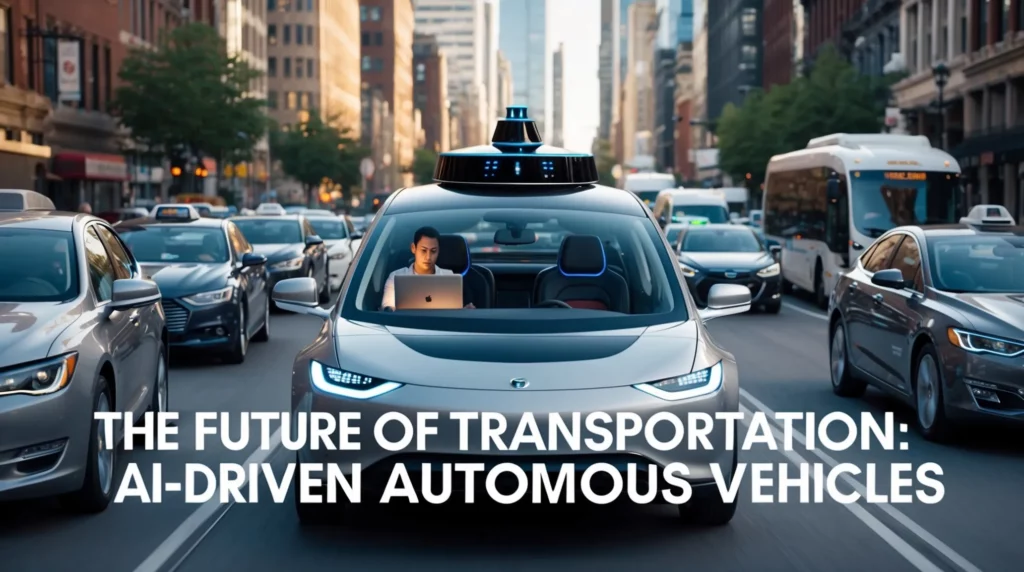
Future technological advancements will likely see AI’s role expanding further into smart cities and personalized healthcare solutions. Expert predictions on the effects of digital technology highlight the potential of artificial intelligence to drive human-centered development. However, societal challenges posed by advanced surveillance technologies and ethical considerations must be addressed.
Key Areas of Focus:
- Smart Cities: Enhancing urban living through intelligent infrastructure.
- Personalized Healthcare Solutions: Tailoring medical treatments using AI-driven insights.
- Human-Centered Development: Ensuring technology benefits humanity as a whole.
- Societal Challenges: Addressing privacy concerns and ethical implications.
Balancing these innovations with responsibility is crucial for sustainable progress.
Conclusion
In conclusion, the rise of artificial intelligence is profoundly transforming industries and everyday life, offering remarkable benefits such as enhanced decision-making, improved efficiency, and innovative applications across sectors like healthcare, finance, transportation, and criminal justice. In our daily lives, Artificial Intelligence is revolutionizing personal convenience and data-driven decision-making through smart devices.
However, this rapid advancement brings ethical considerations and societal challenges that must be addressed, including safeguarding privacy, ensuring data protection, tackling algorithmic bias, and preparing for job displacement. As we look to the future, balancing innovation with responsibility will be essential to harness AI’s potential for human-centered development while mitigating its risks.
FAQs (Frequently Asked Questions)

